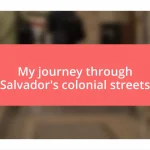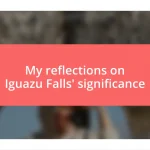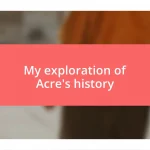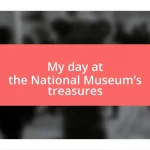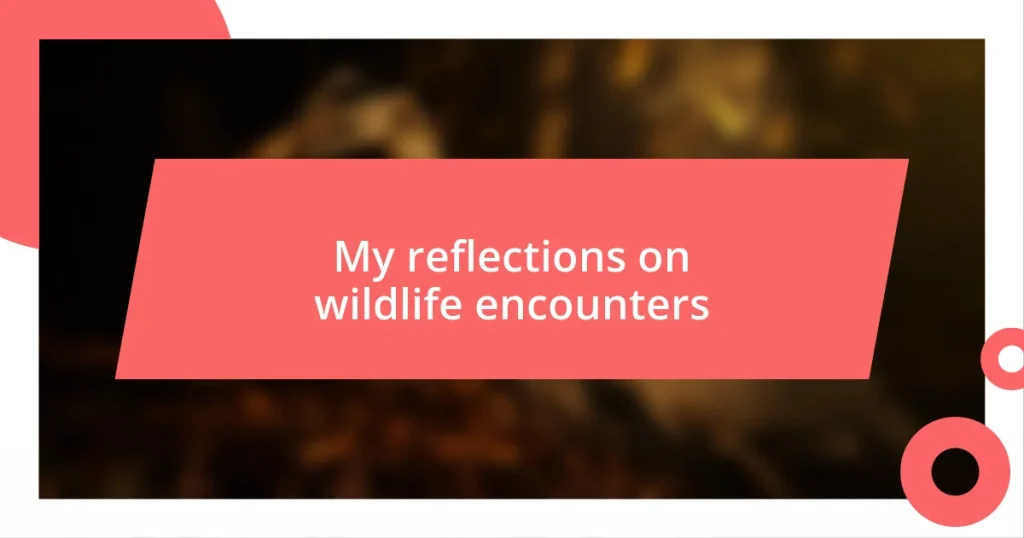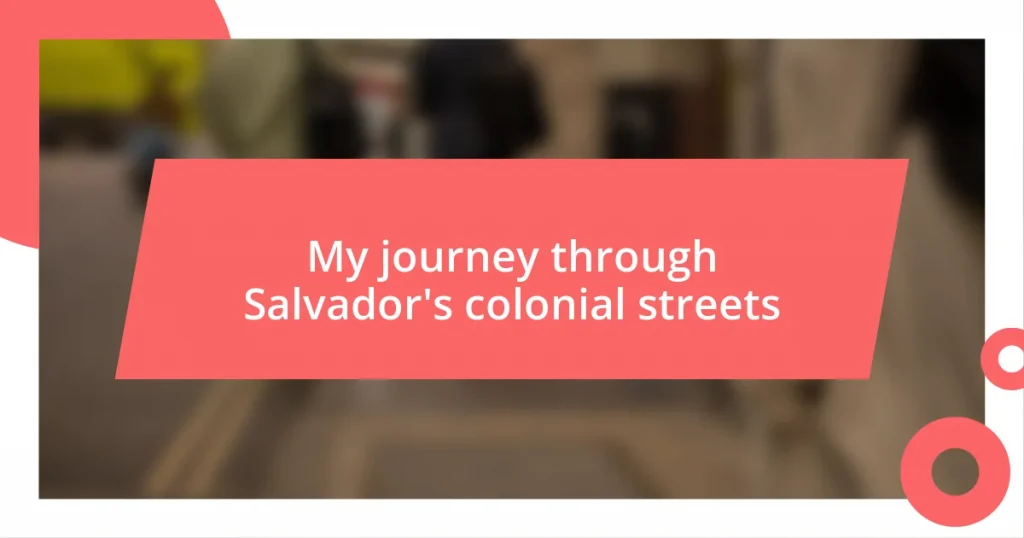Key takeaways:
- Wildlife encounters foster emotional connections and inspire conservation efforts, enhancing our appreciation of nature.
- Preparation, including research on animal behavior and proper gear, is crucial for safe and meaningful wildlife experiences.
- Personal wildlife experiences can lead to reflections on ecological balance and motivate individuals to advocate for environmental stewardship.
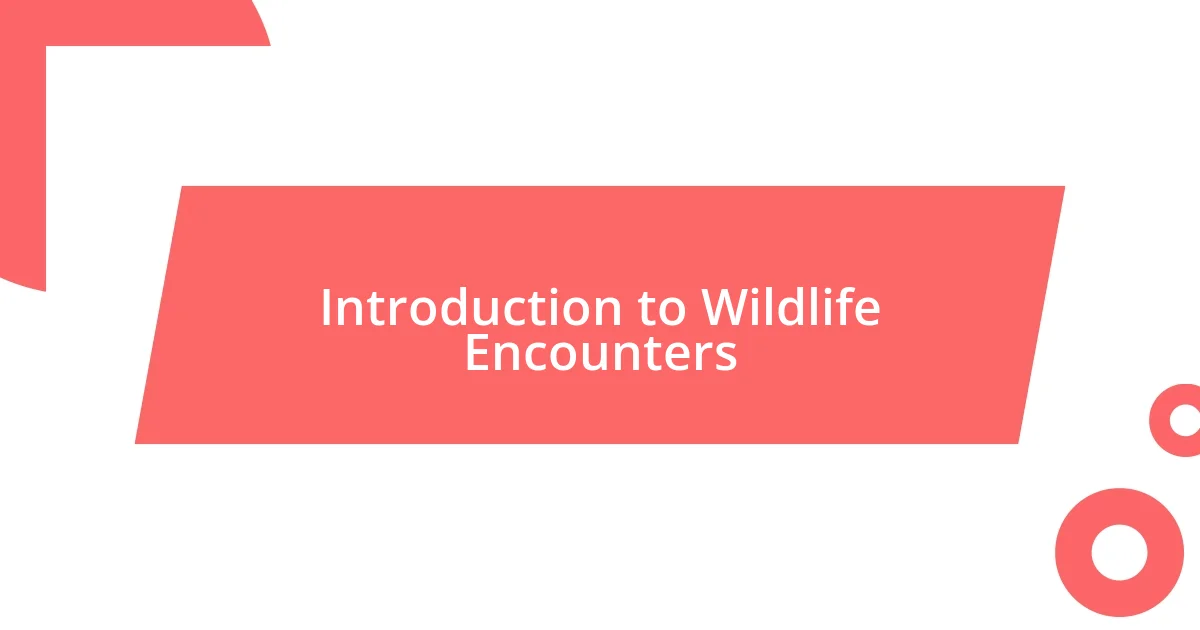
Introduction to Wildlife Encounters
Wildlife encounters can be some of the most transformative experiences in life. I remember a moment when I stumbled upon a family of deer in a quiet glade—an unexpected encounter that left me breathless. The sheer beauty of these gentle creatures, with their watchful eyes and graceful movements, made me wonder: how often do we truly pause to appreciate the wonders of the natural world around us?
These moments often spark a profound connection to nature, which many of us yearn for in our fast-paced lives. I find myself reflecting on how these encounters challenge our perceptions of wildlife and its role in our ecosystem. Have you ever felt that thrilling blend of excitement and reverence when something wild crosses your path?
In an age dominated by screens and virtual experiences, there’s something undeniably grounding about being in the presence of animals that roam free. I recall feeling both small and significant as I watched a majestic eagle soar overhead. It dawned on me that such encounters are not just fleeting moments—they are reminders of our place in the tapestry of life and the importance of preserving these precious interactions for future generations.
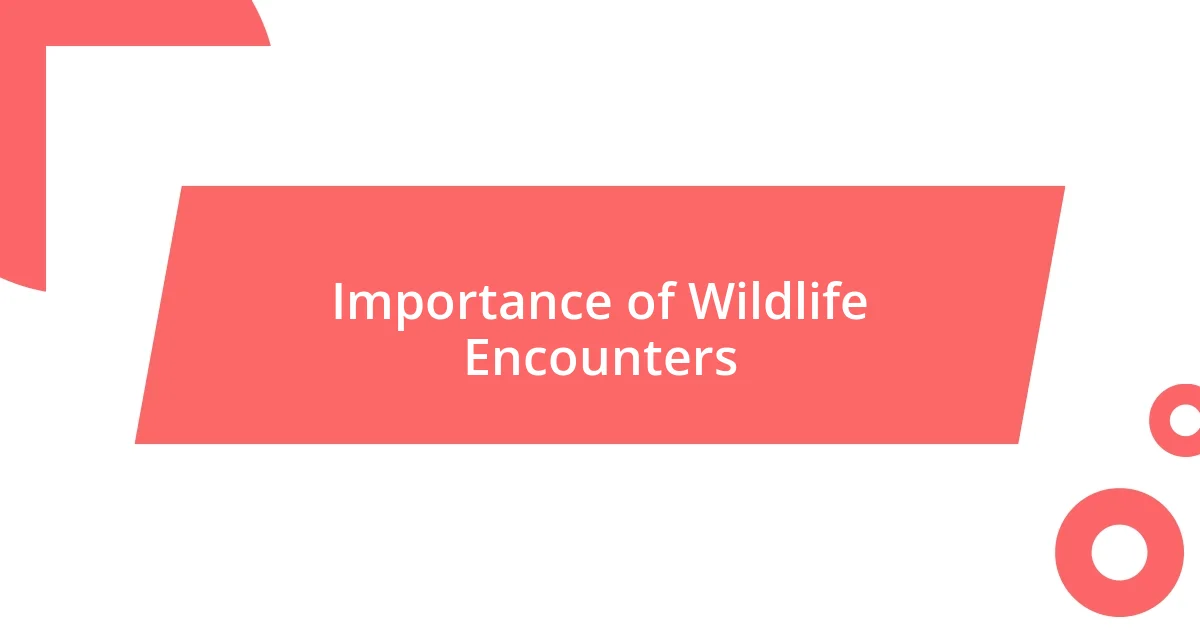
Importance of Wildlife Encounters
Wildlife encounters play a crucial role in enhancing our relationship with the environment. I recall a moment during a hike when I found myself face-to-face with a curious raccoon. Its intelligent eyes seemed to peer right into my soul, igniting an awareness of the interconnectedness of our lives. These encounters remind me that animals are not just part of the scenery; they share our world and our responsibility to protect it.
The significance of wildlife encounters extends beyond personal experience; they foster a deeper understanding of ecological balance and conservation. Here are some important aspects to consider:
- Emotional connection: Seeing wildlife up close can evoke empathy and compassion, encouraging us to advocate for their protection.
- Educational value: Each encounter is an opportunity to learn about species behavior, habitat, and the delicate ecosystems that sustain them.
- Inspiration for conservation: Experiencing the beauty of wildlife first-hand may ignite a passion for preserving natural spaces for future generations.
- Mental well-being: Engaging with wildlife in their natural habitat can reduce stress and promote mindfulness, enhancing our overall health and happiness.
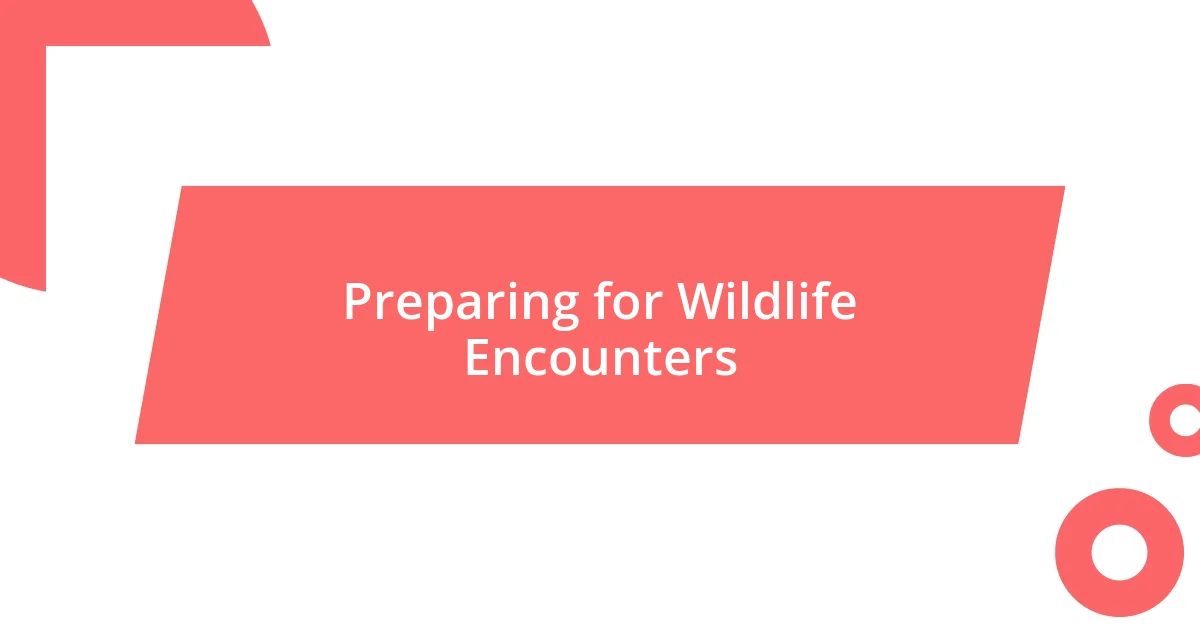
Preparing for Wildlife Encounters
Preparing for wildlife encounters is all about setting the stage for a safe and rewarding experience. I always remind myself to do a little homework before heading out—knowing the type of wildlife I may encounter helps me appreciate the moment even more. For instance, understanding bear behavior before hiking in bear territory can be the difference between an exhilarating encounter and a dangerous situation.
Having the right gear is equally essential. I recall my excitement on a trip where I forgot my binoculars, missing the chance to observe a owls perched high in the trees. Good footwear, a well-equipped backpack, and field guides are vital; they not only enhance your experience but can also keep you safe and comfortable. When you’re properly prepared, the thrill of witnessing wildlife becomes a joy rather than a source of anxiety.
Lastly, adopting the right mindset is key. Approach your wildlife encounters with respect and curiosity. I find that taking a moment to breathe and absorb my surroundings deepens the connection I feel. This attitude not only enriches the encounter but increases the likelihood of observing wildlife in a natural state, where they are more at ease and unguarded.
| Preparation Aspect | Importance |
|---|---|
| Research | Understanding wildlife behavior enhances respect and enjoyment. |
| Gear | The right equipment ensures safety and maximizes the experience. |
| Mindset | A respect-based approach fosters deeper connections with nature. |
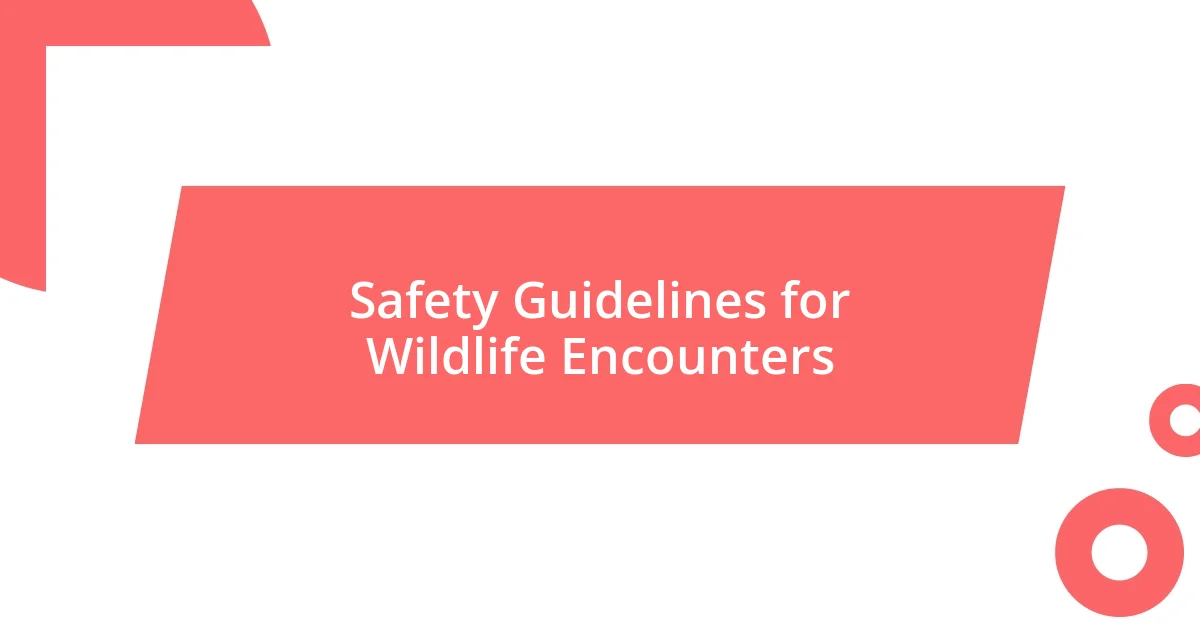
Safety Guidelines for Wildlife Encounters
When it comes to wildlife encounters, keeping safety at the forefront is essential. I remember a time in the mountains when a friend and I encountered a moose unexpectedly. We froze, realizing that the animal was quite close, and we instinctively backed away slowly to give it space. This simple act of retreat showed me the importance of maintaining distance—never approach wild animals, as they can behave unpredictably when they feel threatened.
Always familiarize yourself with specific safety protocols related to the wildlife in your area. For instance, if you’re in bear country, knowing how to properly store food and attractants can minimize the risk of an unwanted encounter. It might seem daunting to think about, but I always find comfort in being prepared. Carrying bear spray and knowing how to use it can be a game-changer, turning anxiety into confidence as you explore nature.
Finally, trust your instincts. If an encounter feels off, it’s okay to leave. There was that one afternoon when I felt a sense of unease while watching a group of deer. Their eyes seemed more alert than usual, and I realized it was best to move back quietly and let them be. Have you ever felt that intuitive nudge? My experiences have taught me that listening to your gut can lead to safer wildlife encounters and more enriching moments in nature.
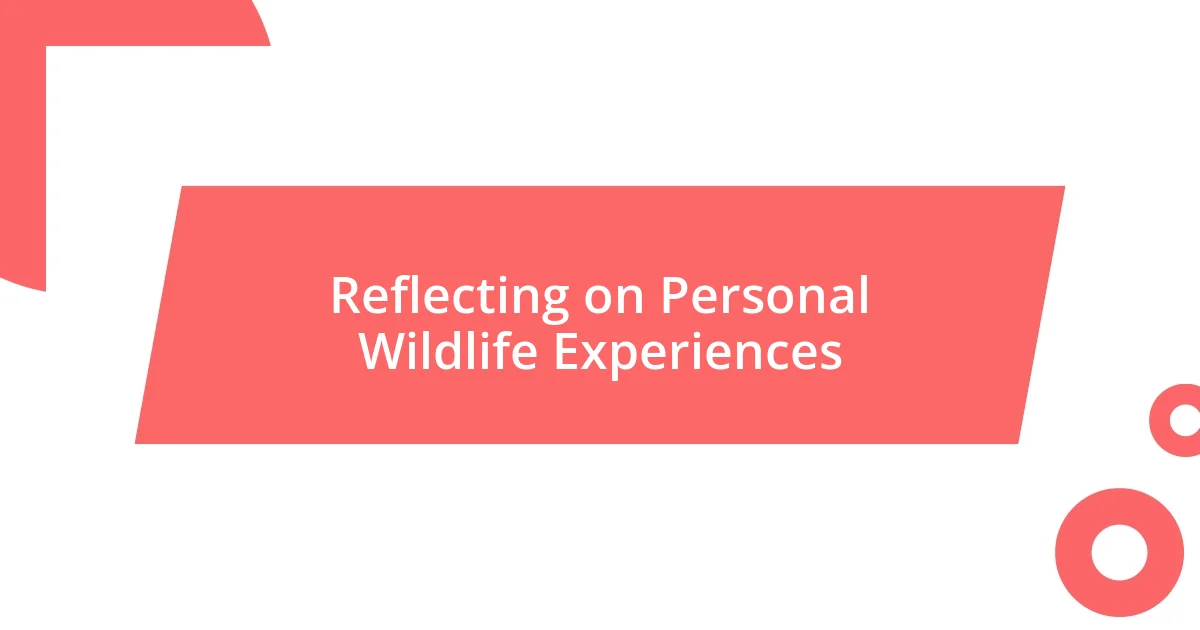
Reflecting on Personal Wildlife Experiences
Reflecting on my encounters with wildlife often brings a wave of nostalgia and wonder. I vividly recall an afternoon spent by a serene lake where a family of otters frolicked nearby. Watching their playful antics was not just amusing; it allowed me to witness a slice of their world. In that moment, I felt an overwhelming connection to nature and a profound sense of joy.
Another experience that stands out was during a chilly morning trek when I unexpectedly spotted a majestic bald eagle soaring overhead. The sheer grace of its flight took my breath away and made me ponder the importance of these beautiful creatures in our ecosystem. Have you ever had a moment where time seemed to stand still, allowing you to absorb everything around you? That day, I was reminded of the delicate balance of nature and my role in preserving those moments.
Every wildlife encounter leaves me with lasting lessons. On a camping trip, I witnessed the quiet resilience of a lone deer nibbling on foliage, seemingly unbothered by the worldly chaos just beyond the trees. This sight compelled me to reflect on the patience and simplicity of wildlife. How often do we rush through life, missing the beauty in the moment? It’s these experiences that not only enrich my life but inspire me to share my passion for wildlife with others.
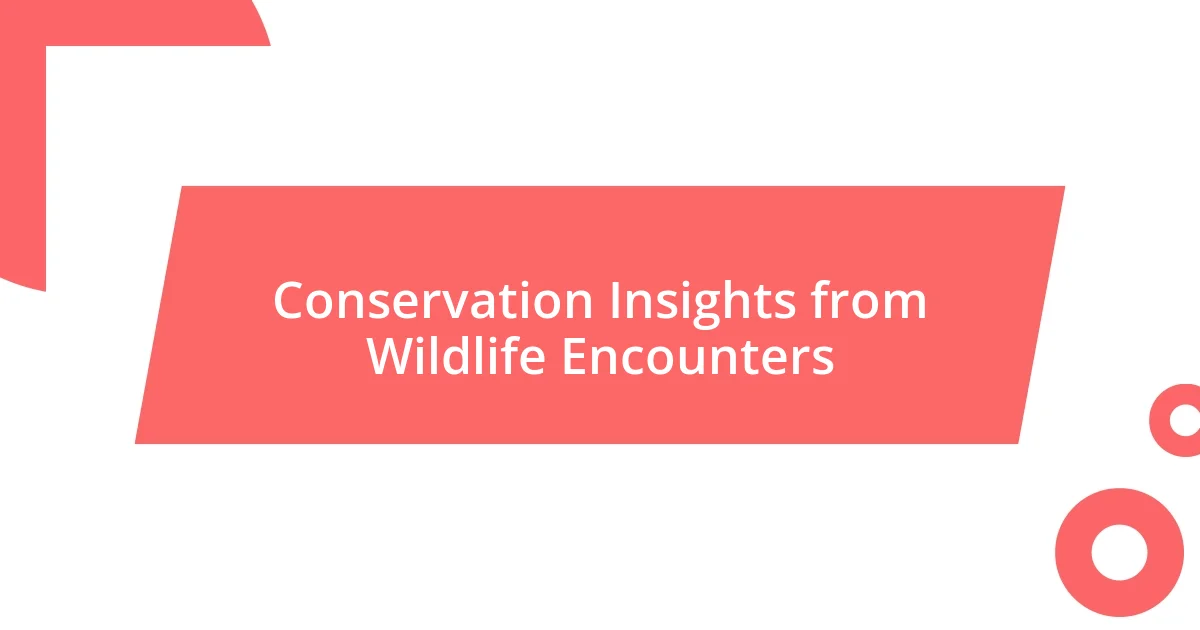
Conservation Insights from Wildlife Encounters
Experiencing wildlife up close can illuminate the fragile balance of ecosystems. Once, while hiking through a dense forest, I encountered a family of foxes playing in a sun-drenched clearing. Observing their playful interactions reminded me of the interconnectedness of species—I felt an inner responsibility to safeguard their habitat. Have you considered how our daily actions impact wildlife habitats? This reflection motivates me to advocate for conservation efforts.
During another unforgettable encounter, I accidentally stumbled upon a turtle laying eggs in the sand along a coastal shore. Witnessing this ancient ritual sparked an emotional response, as I thought about the perils these turtles face from rising sea levels and plastic pollution. Can you imagine the challenges these creatures endure to ensure their survival? It ignited in me a sense of urgency toward conservation; moments like these crystallize the need for us to become stewards of our environment.
Moreover, I’ve learned that sharing these experiences can inspire others. After recounting a fascinating afternoon spent observing migratory birds with friends, I noticed how it invigorated their interest in wildlife conservation. Have you ever seen someone’s perspective shift because of a simple story? I believe that passion is contagious, and every wildlife encounter can serve as a catalyst for broader environmental awareness, urging us collectively toward a more sustainable future.

